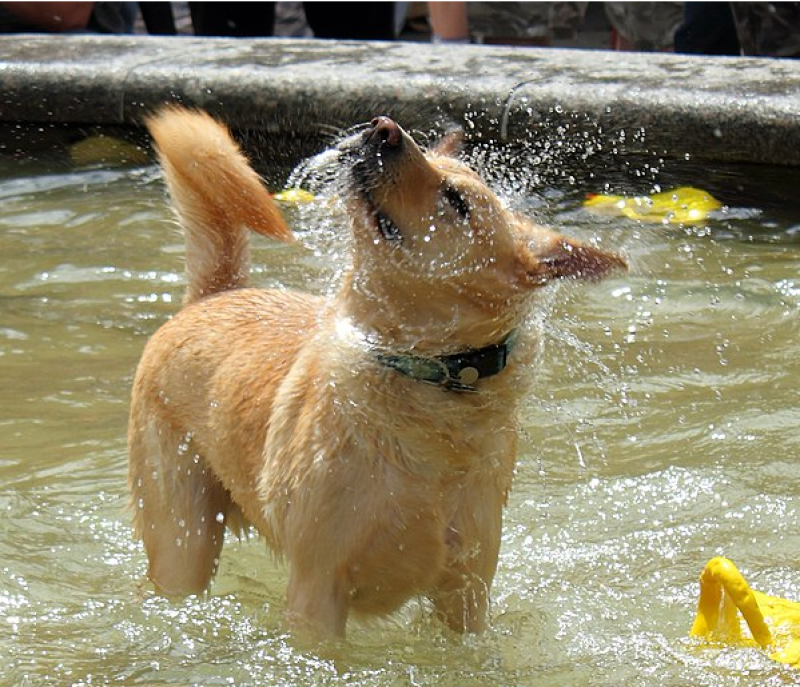Date Published: 22/03/2022
7 radical rules in Murcia you might not be aware of
From carving hearts on trees to watering flowers in the day, many common practices are actually prohibited in Murcia
Murcia is no exception, and we’ve rounded up seven of the most baffling bylaws in the city that you should know about, to avoid having to pay dearly.
1. Bathing in fountains and lakes
Murcia experiences more than 300 days of sunshine a year, one of the many reasons why it’s recently been labelled
the happiest place in all of Spain. The scorching summer weather drives people to the cooler coast in their droves, but for those stuck in the sweltering city: beware. It’s strictly forbidden to cool off in urban fountains, lakes and ponds, and doing so can result in a fine of up to 750 euros.
Fishing rods should also be confined to the sea and rivers, since trying your luck in the city’s lakes carries a hefty fine of between 1,501 and 3,000 euros. The same penalty applies to throwing any toxic substances into the water.
2. Wooded areas
There’s scarcely a person alive who hasn’t at one time or another carved their name or that of their loved one into a tree trunk, but in Murcia this is considered an offence and will cost you 750 euros. It’s also prohibited to climb urban trees, drive nails into them or pick fruit, such as lemons and oranges.
The same fixed fine applies to “allowing dogs to enter children’s play areas, flower beds, ponds or fountains.”
3. Tram travel
The Tranvía de Murcia doesn’t actually offer measuring devices for luggage so this next rule usually goes unnoticed, but passengers are not allowed to transport "any package measuring more than 100x60x25 centimetres", according to the official rules. In fact, you have to pay more than the price of a second suitcase on a plane: the penalty is 300 euros, the same fine applied if you’re caught eating on the tram.
There is also a penalty of up to 150 euros for spitting or throwing cigarette butts.
4. Watering plants
In the Region of Murcia, plants placed outside homes, on windows or balconies, can only be watered between the hours of 11pm and 7am, according to the Street Cleaning ordinance. It’s also prohibited to shake out rugs onto public roads, or to throw paper or advertising circulars on the ground.
Offenders almost always get away with it, but the regulations provide for fines of between 30 and 150 euros.
A curious rule in this section concerns acts of propaganda: the distribution or placement of posters, without proper authorization, can result in a serious fine of between 151 and 6,000 euros.
5. Motoring rules
Last year, Murcia City Council launched an initiative against people washing windshields of cars at traffic lights, an infraction that can cost up to 1,500 euros. Simply offering this service – or anything else for sale to a driver – can result in a 750 euro fine.
It’s strictly forbidden to wash your car in the street in Murcia, as is carrying out repairs or changing the oil. Any liquids dumped in the street will cost the culprit between 151 and 6,000 euros.
Strangely enough, parking a car at night with the engine running which could cause noise pollution goes against the rules, and the fine for this ranges from 90 to 400 euros.
6. Washing machines and appliances
Everyone’s trying to save a euro or two on electricity at the moment, but it’s expressly forbidden to use appliances “that cause inconvenience to the neighbours, at night.” The noise limit between 11pm and 7am (coinciding almost perfectly with off-peak electricity hours) is 30 decibels, but according to the Organisation of Consumers and Users, the noise generated by a washing machine ranges between 46 and 57 dBA, far higher than the allowed limit.
The sanction can amount to 3,000 euros if the limit is exceeded by 13 or more decibels.
7. Pet hate
According to noise regulations, people are not allowed to leave birds and other animals in outdoor areas of houses or buildings at night “that disturb the rest or peace of the neighbours”. In this case, in addition to a fine of between 90 and 400 euros, the animal can be removed by the authorities. The regulations, which regulate other sources of neighbourhood clashes, also prohibit the installation of air conditioning in interior patios if it causes inconvenience.
Image: Wikimedia Commons
article_detail

|












